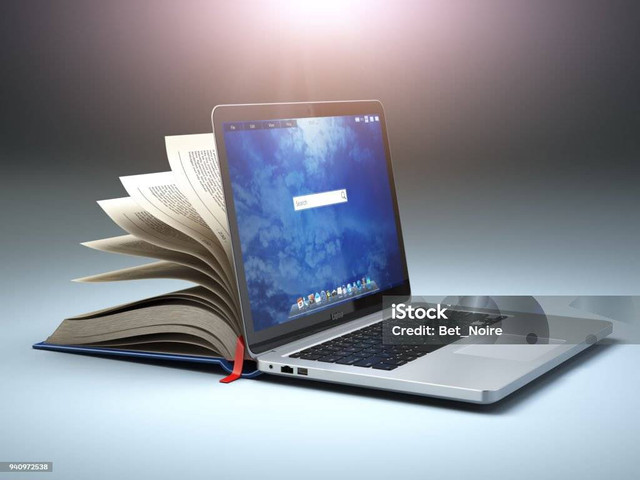Tentang KamiPedoman Media SiberKetentuan & Kebijakan PrivasiPanduan KomunitasPeringkat PenulisCara Menulis di kumparanInformasi Kerja SamaBantuanIklanKarir
2025 © PT Dynamo Media Network
Version 1.94.0
Konten dari Pengguna
From Pixel to Page: How Digital Literature Influencing Traditional Publishing
9 Desember 2024 14:12 WIB
·
waktu baca 4 menitTulisan dari Michael Dwight tidak mewakili pandangan dari redaksi kumparan

ADVERTISEMENT
The emergence of digital forms has greatly impacted how tales are produced, read, and shared in the quickly changing literary world. As e-books, online publications, and interactive stories proliferate, digital literature has transformed not only the reading experience but also the publishing landscape. This essay explores the relationship between traditional publishing and digital literature, emphasizing how the former has a revolutionary effect on the latter.
ADVERTISEMENT
The availability of literature has been transformed by the introduction of e-readers and online publishing platforms. Thanks to e-books, which are affordable and convenient, readers may now carry entire libraries in their pockets. Aspiring writers may connect with readers around the world through platforms like Wattpad and Amazon Kindle Direct Publishing, which removes the obstacles that come with traditional publishing. The literary landscape has been enhanced by the explosion of fresh voices and stories brought about by this democratization of literature.
The way readers interact with stories has also changed as a result of digital literature. Audiences may now connect with stories in new ways thanks to interactive storytelling and multimedia components like sound and animation. Readers become active participants in the storytelling process rather than passive consumers as a result of this evolution, which promotes a more participatory culture. This change has significant effects for writers because they now need to think of creative ways to captivate their readers.
ADVERTISEMENT
Traditional publishers are reassessing their business strategies in light of the growing popularity of digital literature. New marketing techniques and cooperative models have resulted from major publishers' compulsion to adjust to the emergence of self-publishing and independent authors. A growing number of conventional publishers are now making investments in digital-first projects as they understand the need of reaching audiences across various media. Furthermore, digital writing frequently presents novel styles and genres that defy conventional classifications. The literary environment is becoming more varied as a result of publishers' growing willingness to investigate these new genres. The impact of digital literature pushes traditional publishers to embrace innovation and take chances, resulting in stories that blur the lines between genres and interactive fiction.
ADVERTISEMENT
The line between traditional and digital publication is getting more and more confused. In order to accommodate different reader preferences, a growing number of authors now write both print and e-book versions. More creative innovation is encouraged and the literary environment is enhanced by this cross-pollination. As digital storytelling gains popularity, traditional publishers are starting to see its benefits and are frequently working with digital platforms to reach larger audiences. The organization and presentation of stories are also being impacted by digital literature. Traditional authors are being forced to reconsider their methods due to the growing popularity of short-form content and serialized storytelling. Because they are used to consuming digital content quickly, readers are looking for tales that are simple to obtain and can be consumed in short bursts. This shift forces writers to play around with format, tempo, and structure, which eventually results in more dynamic storytelling.
ADVERTISEMENT
Digital literature has many advantages, but it also has disadvantages. Problems including market saturation, illegal downloading, and the challenge of being noticed in a crowded field can be damaging to both publishers and authors. These difficulties, meanwhile, also spur creativity and adaptation, pushing writers and publishers to come up with fresh approaches to engaging readers. Adopting digital literature requires traditional publishers to make technological investments and adjust to the evolving tastes of their readership. Those who make it through this change with success might open up new opportunities for development and interaction. Through the utilization of digital and print forms, publishers may produce literary experiences that are more varied and deep, while yet appealing to contemporary audiences.
ADVERTISEMENT
Digital literature's impact on traditional publishing will only increase as it develops further. The transition from pixel to page represents a fundamental change in the way we perceive storytelling, not only a trend. Accepting this shift will enable writers and publishers to create stories that capture the complexity of modern life, improving literature for all readers in the process.

